
Pooja Verma
20,047 pts
Guru

"Crafting Words, Building Worlds: Your Story, Our Expertise."
Explore my realm of words and wonders! I'm a versatile freelancer writer offering motivational tips, writing inspiration and lot more. Let's wanderlust together!

Critical thinking is a vital skill in today's complex world. Here are seven key elements to cultivate and enhance your critical thinking abilities:
1. Questioning: Begin by questioning assumptions, biases, and information presented. Ask "why" and "how" to delve deeper into the root of issues and understand different perspectives.
2. Analysis: Break down complex ideas or situations into smaller components to examine them systematically.
3. Interpretation: Develop the ability to interpret and evaluate information objectively. Consider the credibility of sources, context, and possible interpretations.
4. Inference: Draw logical conclusions based on evidence and reasoning. Identify the implications and consequences of different scenarios.
5. Evaluation: Assess the validity, relevance, and reliability of information and arguments.
6. Explanation: Articulate your thought process and reasoning clearly. Communicate ideas effectively, providing evidence and logical support.
7. Self-Regulation: Reflect on your own thinking processes and biases. Be open to new information and perspectives.
Steps to Enhance Critical Thinking Skills:
1. Practice Active Listening: Engage actively with information by listening attentively, taking notes, and asking clarifying questions.
2. Read Widely: Expose yourself to diverse perspectives, disciplines, and sources of information to broaden your understanding and challenge assumptions.
3. Engage in Discussions: Participate in discussions or debates to exchange ideas, consider different viewpoints, and refine your arguments.
4. Solve Problems: Approach problems methodically, breaking them down into manageable parts and considering multiple solutions before deciding on the most effective approach.
5. Seek Feedback: Solicit feedback from peers, mentors, or experts to gain insights into blind spots and areas for improvement in your critical thinking skills.
6. Continuous Learning: Cultivate a mindset of lifelong learning, seeking opportunities to acquire new knowledge, skills, and perspectives.
7. Reflect and iterate: Regularly reflect on your critical thinking processes, identifying strengths and areas for growth.
By incorporating these key elements and steps into your daily practice, you can enhance your critical thinking skills.
Posts
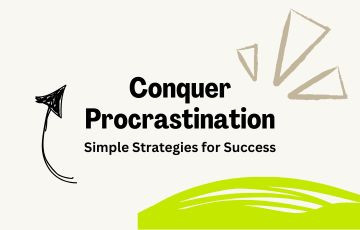
Procrastination: the universal enemy of productivity. We've all been there, putting off important tasks until the last minute, only to feel overwhelmed and stressed. But fear not! With a few simple strategies, you can beat procrastination and reclaim your time and focus.
1. Break it Down: When faced with a daunting task, break it down into smaller, manageable steps. This makes the task seem less intimidating and helps you get started.
2. Set Deadlines: Hold yourself accountable by setting realistic deadlines for each step of your project. Use tools like calendars or task management apps to track your progress.
3. Create a Routine: Establish a daily routine that includes dedicated time for work, breaks, and relaxation. Consistency is key to overcoming procrastination.
4. Eliminate Distractions: Identify and remove distractions from your workspace. Turn off notifications, close unnecessary tabs, and find a quiet environment where you can focus without interruption.
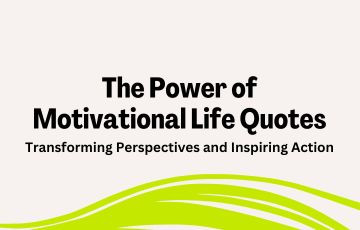
In a world often filled with challenges and uncertainties, the timeless wisdom encapsulated in motivational life quotes serves as a beacon of hope, guiding individuals through their journey of self-discovery and personal growth.
These succinct nuggets of inspiration have the remarkable ability to ignite passion, instill confidence, and propel individuals towards their goals.
One of the profound effects of motivational life quotes is their ability to shift perspectives.
For example, the timeless words of Maya Angelou, "I can’t change the direction of the wind, but I can adjust my sails to always reach my destination," serve as a poignant reminder that despite external circumstances, individuals possess the agency to navigate their lives with grace and determination.
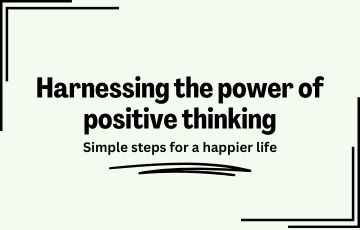
In a world filled with challenges and uncertainties, the power of positive thinking can be a transformative force in our lives .
Here are some practical steps to incorporate positive thinking into your daily routine:
Practice Gratitude: Take a few moments each day to reflect on the things you are grateful for. Keeping a gratitude journal can help you focus on the positive aspects of your life, no matter how small they may seem.
Challenge Negative Thoughts: When negative thoughts arise, challenge them with positive affirmations. Replace self-doubt with self-compassion and criticism with encouragement. Remember, you have the power to control your thoughts.
Surround Yourself with Positivity: Surround yourself with positive influences, whether it's uplifting books, motivational quotes, or supportive friends and family. Limit exposure to negativity, such as negative news or toxic relationships.
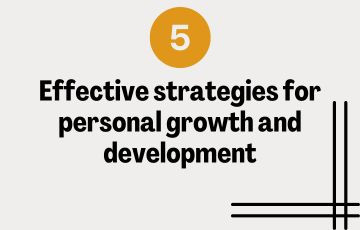
Personal growth and development are essential for living a fulfilling and meaningful life.
Here are five effective strategies to help you on your journey:
1. Set Clear Goals: Start by defining specific, achievable goals for yourself. Whether short-term or long-term, having clear objectives gives you direction and motivation.
Break down your goals into smaller tasks and create a plan to tackle them systematically. Regularly review and adjust your goals as needed to stay on track.
2. Cultivate a Growth Mindset: Embrace the belief that your abilities and intelligence can be developed through dedication and hard work. Practice self-compassion and celebrate your progress, no matter how small.
3. Continuously Learn and Seek Feedback: Commit to lifelong learning and self-improvement. Take advantage of opportunities to expand your knowledge and skills through books, courses, workshops, and mentorship.
Additionally, solicit feedback from others to gain valuable insights into your strengths and areas for improvement. Be open to constructive criticism and use it to fuel your growth.

In the intricate dance of life, our habits play a pivotal role in shaping who we are and how we perceive ourselves. From the moment we wake until we close our eyes at night, our actions, repeated over time, solidify into habits that not only define our daily routines but also mold our very identities.
Our habits are the building blocks of our character. The things we do consistently, whether consciously or unconsciously, gradually form patterns that become ingrained in our psyche.
Whether it's the way we start our day with a cup of coffee, or how we react to stress, these routines become intertwined with our sense of self.
Conversely, our identity also influences our habits. Our beliefs, values, and self-perception shape the behaviors we adopt.
For example, someone who sees themselves as a health-conscious individual is more likely to exercise regularly and eat nutritious foods. Likewise, someone who views themselves as an avid reader.
This bidirectional relationship between habits and identity can either propel us towards growth or keep us stuck in limiting patterns.
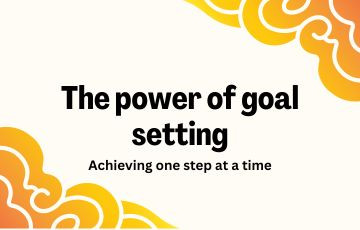
Goal setting is not just a simple task; it's a fundamental principle that drives success in various aspects of life. Whether it's personal growth, career advancement, or health and fitness, setting specific, measurable, achievable, relevant, and time-bound (SMART) goals can significantly enhance motivation and productivity.
Setting goals provides clarity and direction, helping individuals prioritize their actions and focus their efforts on what truly matters. Without clear objectives, it's easy to feel lost or overwhelmed, leading to procrastination and a lack of progress.
Moreover, goal setting fosters accountability and commitment. When individuals set goals, they create a sense of responsibility for themselves to follow through and take action.
Sharing goals with others, whether it's friends, family, or colleagues, can further increase accountability and provide additional support and encouragement along the way.

In this post, we'll explore 15 of the most common mistakes students make while studying for exams and how to avoid them.
1. Procrastination: Putting off studying until the last minute leaves little time for effective learning and retention.
2. Lack of planning: Failing to create a study schedule can lead to cramming and stress.
3. Ignoring the syllabus: Not focusing on the topics outlined in the syllabus can result in overlooking important information.
4. Multitasking: Trying to study while watching TV or browsing social media.
5. Lack of breaks: Studying for long periods without breaks can decrease focus.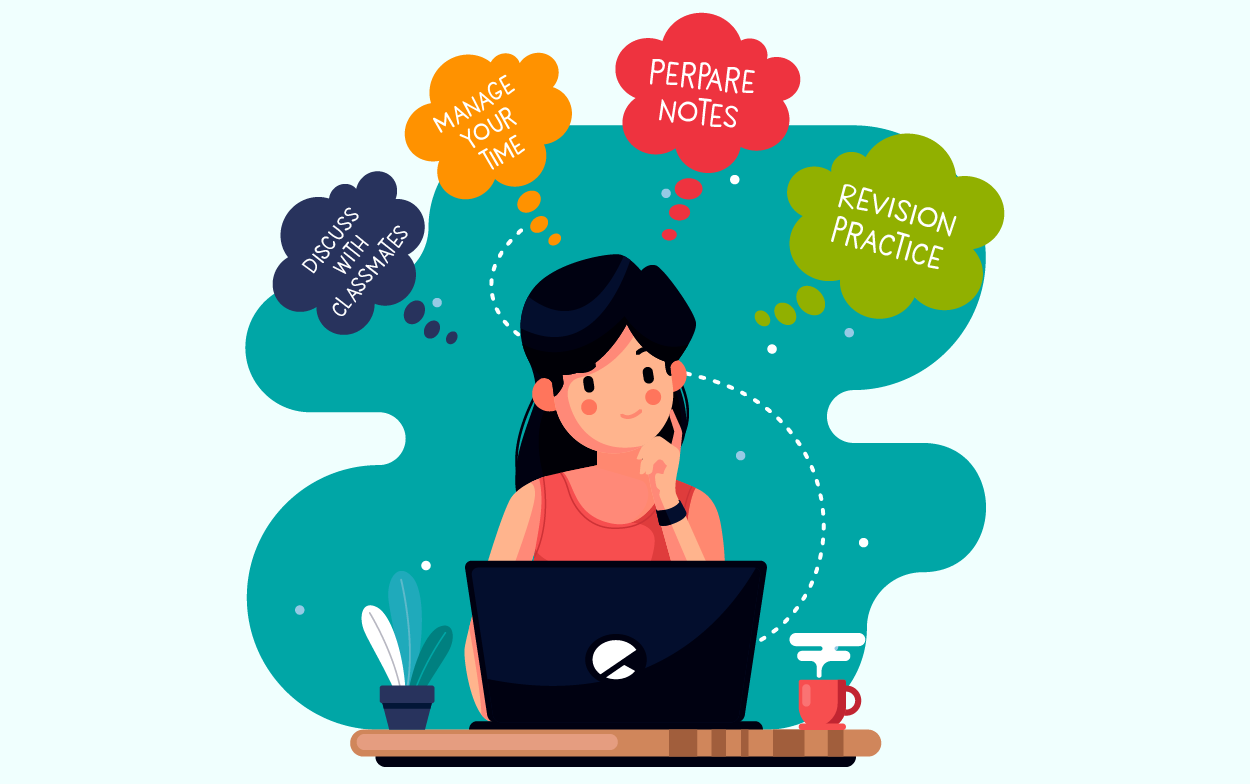
6. Memorization over understanding: Relying solely on rote memorization without understanding the concepts leads to shallow learning.
7. Poor time management: Spending too much time on one topic can leave insufficient time for others.
8. Not using active learning techniques: Passive reading without engaging with the material through activities like summarizing, questioning, or teaching can hinder comprehension.
9. Skipping practice tests: Practice tests help identify weak areas and improve exam-taking skills.
10. Neglecting sleep: Pulling all-nighters may seem productive, but adequate sleep is essential for memory consolidation and cognitive function.
11. Not seeking help: Avoiding asking questions or seeking clarification on challenging topics can lead to misunderstandings.
12. Over-reliance on study groups: While study groups can be beneficial, relying too heavily on them may result in distractions or dependence on others' understanding.
13. Not staying organized: Disorganized study materials can lead to confusion and inefficiency.
14. Sacrificing self-care: Neglecting physical and mental well-being during exam preparation can lead to burnout and decreased performance.
15. Underestimating the importance of review: Reviewing previously learned material helps reinforce learning and increases retention.
In conclusion, by recognizing and avoiding these common study mistakes, students can improve their exam preparation and increase their chances of success.
Remember to prioritize effective study techniques, time management, and self-care to achieve optimal results.
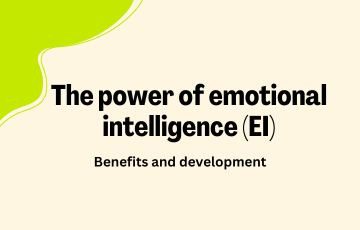
Emotional intelligence (EI) is the ability to recognize, understand, and manage our own emotions, as well as the emotions of others.
It encompasses skills like empathy, self-awareness, self-regulation, and social skills. While traditional intelligence (IQ) focuses on cognitive abilities, EI plays a crucial role in personal and professional success.
One of the key benefits of emotional intelligence is enhanced interpersonal relationships. People with high EI can navigate social situations effectively, communicate clearly, and resolve conflicts peacefully.
They are empathetic listeners who understand the perspectives of others, fostering trust and cooperation.
Emotional intelligence also contributes to effective leadership. Leaders who possess EI inspire and motivate their teams, create a positive work environment, and adapt to change with resilience.
They excel in decision-making by considering both rational analysis and emotional implications.
Moreover, individuals with high EI tend to have better mental health outcomes. They can manage stress, cope with setbacks, and maintain a positive outlook on life. This resilience leads to greater overall well-being and satisfaction.

Critical thinking is a vital skill in today's complex world. Here are seven key elements to cultivate and enhance your critical thinking abilities:
1. Questioning: Begin by questioning assumptions, biases, and information presented. Ask "why" and "how" to delve deeper into the root of issues and understand different perspectives.
2. Analysis: Break down complex ideas or situations into smaller components to examine them systematically.
3. Interpretation: Develop the ability to interpret and evaluate information objectively. Consider the credibility of sources, context, and possible interpretations.
4. Inference: Draw logical conclusions based on evidence and reasoning. Identify the implications and consequences of different scenarios.
5. Evaluation: Assess the validity, relevance, and reliability of information and arguments.
6. Explanation: Articulate your thought process and reasoning clearly. Communicate ideas effectively, providing evidence and logical support.
7. Self-Regulation: Reflect on your own thinking processes and biases. Be open to new information and perspectives.
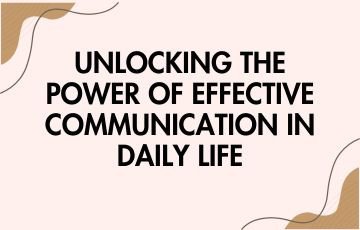
Explore essential insights into mastering communication skills. Enhance your ability to convey ideas effectively and build strong relationships.
Communication is the cornerstone of human interaction. Whether it's expressing ideas, resolving conflicts, or building relationships, effective communication skills are indispensable.
Here are some practical steps to enhance your communication prowess in everyday life:
1. Listen actively: Pay full attention to the speaker without interrupting. Validate their feelings and thoughts by paraphrasing or asking clarifying questions.
2. Practice empathy: Put yourself in others' shoes to understand their perspectives and emotions. Empathetic communication builds trust and strengthens relationships.
3. Master non-verbal cues: Be mindful of your body language, facial expressions, and tone of voice. They often convey more meaning than words alone. Maintain eye contact, smile, and use a confident yet approachable demeanor.
4. Be concise and clear: Avoid rambling and convey your message succinctly. Use simple language and organize your thoughts logically to ensure clarity.
5. Seek feedback: Actively solicit feedback from others to identify areas for improvement. Embrace constructive criticism and strive to refine your communication style continuously.
6. Adapt your communication style: Tailor your approach based on the situation and the preferences of your audience. Flexibility in communication enhances receptivity.
7. Cultivate self-awareness: Reflect on your communication patterns and identify any biases or barriers that may hinder effective communication.
8. Practice assertiveness: Express your thoughts, feelings, and needs confidently while respecting the rights of others.
9. Stay present in conversations: Minimize distractions and focus on the conversation at hand.
10. Seek opportunities for practice: Whether it's engaging in debates, joining public speaking clubs, or simply engaging in meaningful conversations, consistent practice is key to honing your communication skills.
By integrating these strategies into your daily interactions, you can unlock the power of effective communication and cultivate richer, more fulfilling connections with others.
Remember, communication is not just about conveying information—it's about fostering understanding, building relationships, and navigating life's complexities with grace and clarity.

In the iconic play "Inherit the Wind" by Jerome Lawrence and Robert E. Lee, a profound statement resonates:
"God himself, sir, does not propose to judge man until the end of his days."
This line encapsulates a timeless truth that speaks to the complexity of the human experience and the nature of divine judgment.
At its core, this quote challenges our understanding of divine justice. It suggests that the ultimate judgment of humanity lies beyond the confines of our mortal existence.
In other words, we are not to presume to know the entirety of God's plan or to pass final judgment on one another.
This sentiment carries profound implications for how we navigate our relationships and interactions with others. It calls us to embrace humility and compassion, recognizing that we are all flawed beings on a journey of growth and self-discovery.
Moreover, this quote invites us to contemplate the concepts of time and eternity. It reminds us that our actions and choices in the present moment have consequences that extend far beyond our immediate circumstances.
Just as God's judgment is deferred until the end. This underscores the importance of living with intentionality and mindfulness, mindful of the impact we have on the world around us.
"Inherit the Wind" confronts us with fundamental questions about faith, reason, and the human condition. Through its exploration of the Scopes Monkey Trial, the play grapples with the tension between tradition and progress, belief and skepticism.
In conclusion, the quote by Jerome Lawrence and Robert E. Lee serves as a poignant reminder of the complexity of the human experience and the mystery of divine judgment.
It challenges us to embrace humility, compassion, and mindfulness as we navigate the intricacies of life, knowing that our ultimate fate rests in the hands of a higher power whose wisdom surpasses our own.
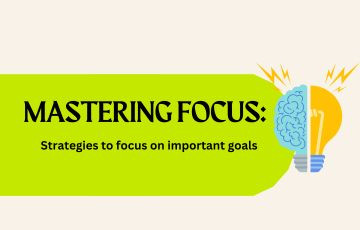
In today's fast-paced world filled with distractions, maintaining focus can feel like an uphill battle. Whether it's the constant ping of notifications, the allure of social media, or the never-ending to-do list, staying concentrated on tasks has become increasingly challenging.
In this blog post, we'll explore effective techniques to help you enhance your focus and stop wasting precious time.
1. Prioritize and Plan
Create a To-Do List: Start each day by outlining your tasks and setting priorities. Break down larger tasks into smaller, manageable steps to avoid feeling overwhelmed.
Use Time Blocking: Allocate specific time slots for different activities throughout your day.
Identify High-Impact Tasks: Determine which tasks will have the greatest impact on your goals and tackle them first when your energy levels are highest.
2. Minimize Distractions
Set Boundaries: Establish clear boundaries with yourself and others to minimize interruptions.
Turn Off Notifications: Silence notifications on your devices or use apps that temporarily block distracting websites and apps during work sessions.
Designate a Distraction-Free Zone: Create a designated workspace free from clutter and distractions to signal to your brain that it's time to focus.
3. Practice Mindfulness
Mindful Breathing: Take a few moments throughout the day to focus on your breath. Deep breathing exercises can help calm the mind.
Mindful Task Switching: Instead of jumping from one task to another impulsively, practice mindful transitions between activities.
Mindful Movement: Incorporate short breaks for physical activity or stretching to rejuvenate your body and mind.
4. Cultivate a Productive Environment
Optimize Your Workspace: Arrange your workspace to promote focus and productivity.
Limit multitasking: Contrary to popular belief, multitasking can hinder productivity and diminish the quality of your work.
Reward Yourself: Set achievable goals and reward yourself upon completion. Celebrating small victories.
By implementing these strategies into your daily routine, you can train your brain to focus more effectively and minimize time wasted on distractions.
Services
Opinions
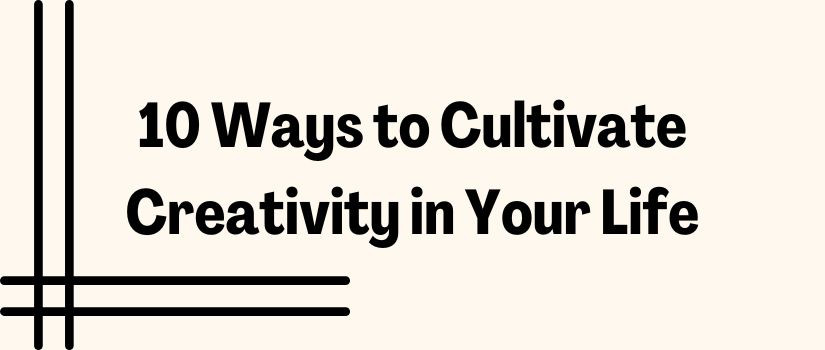
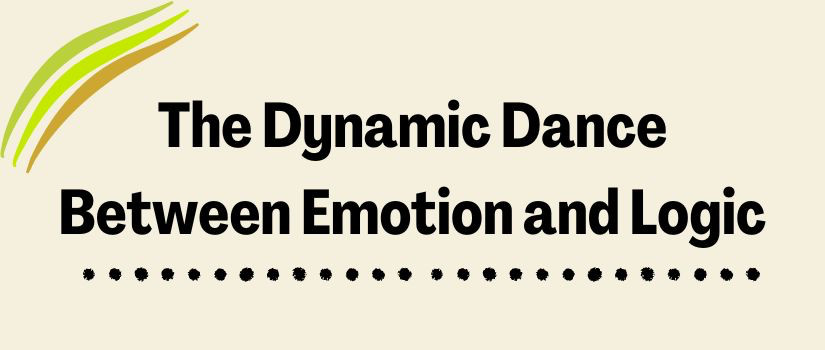
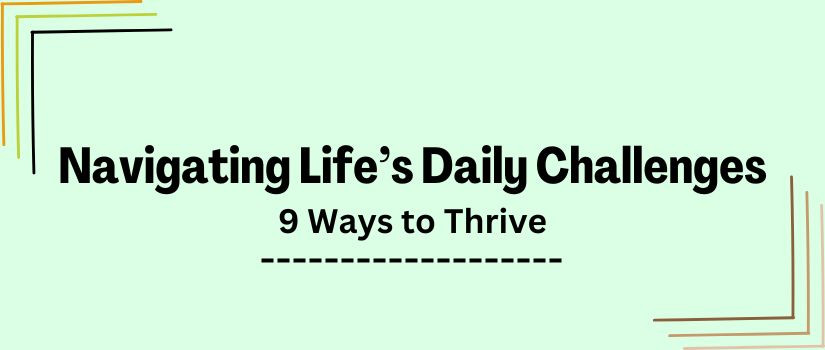

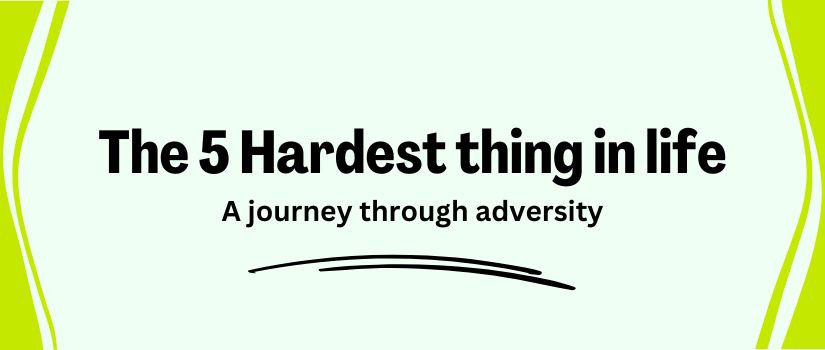
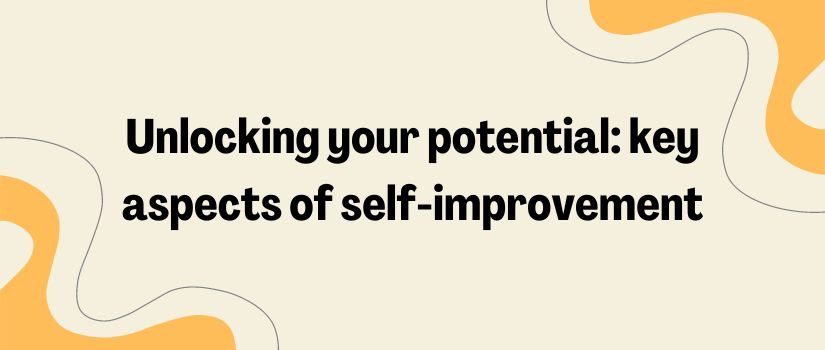
My Topic
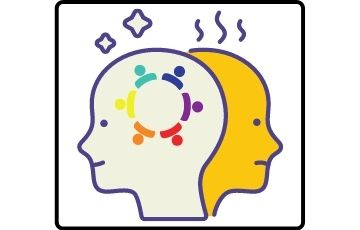
Personality refers to the combination of qualities, attitude, and behavior, that makes a person distinct from others. Character refers to a set of moral and mental qualities and beliefs, that makes a person different from others.
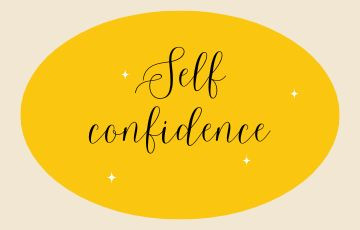
Confidence is a feeling of trust in self or others. When you are clear-headed and have that element of esteem in yourself, it means you have self-confidence. Self-confidence is your trust in your own ability to do any task by viewing yourself.
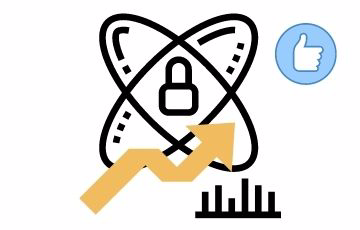
Life hacks are such simple tips and tricks that save an incredible amount of your time. They improve your productivity and help you find quick fixes to annoying situations.

Gratitude is the positive element in you that lets you express your thankfulness for people or things. Gratitude forms an important trait as it defines your attitude. Gratitude attitude also defines who you really are, what you think you are, and what others think you are.



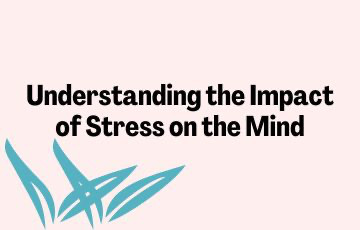
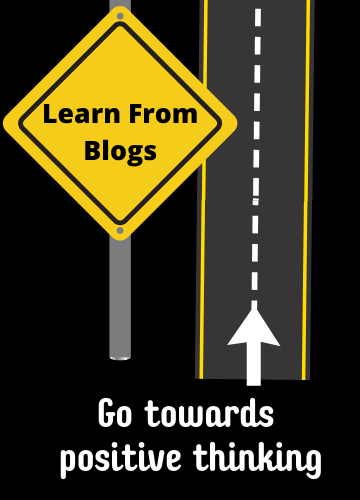


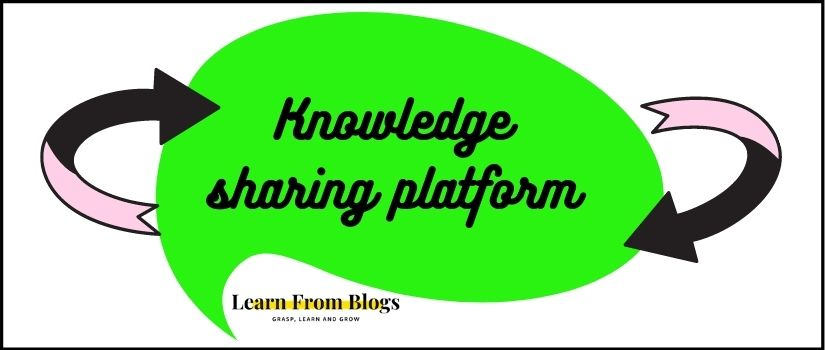
0 comment